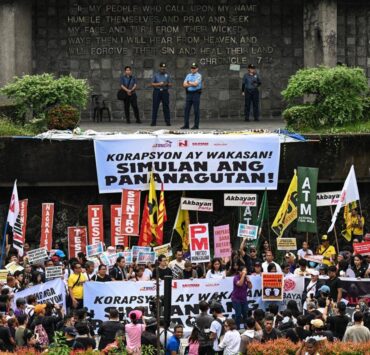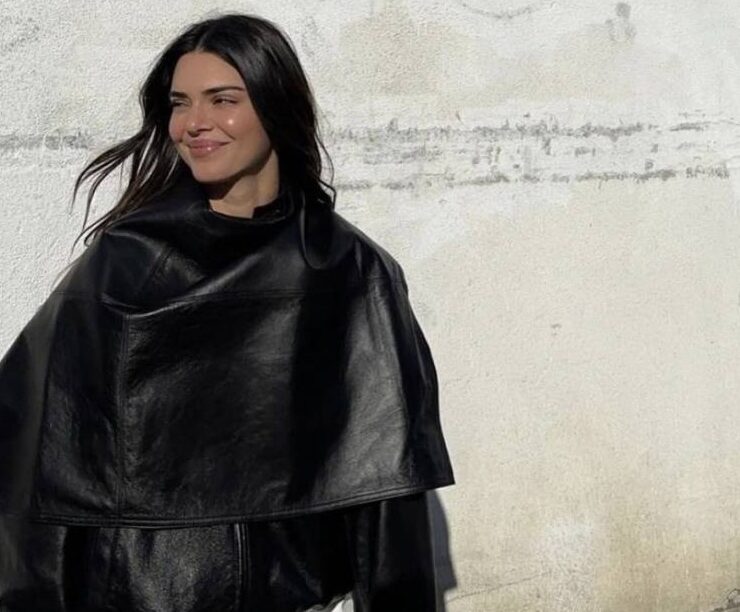Ebe Dancel: ‘Many times burned out, many times reborn’

On Aug. 31, “Burnout,” Sugarfree’s well-loved rock ballad about emotional exhaustion, spiked in streams—as it does from time to time—reaching a new peak at No. 19 on the Spotify Philippines Daily Top Songs chart. And that couldn’t possibly be a good thing.
That day, the song was played 347,498 times, according to available platform data. If we could hazard a guess, somewhere out there, these people were simultaneously tapping play: heartbroken students on the verge of letting go; professionals unraveling amid looming deadlines; and nostalgic millennials reliving their “Sa Wakas” days.
Maybe it’s just the algorithm. Maybe the “Macolet” shippers—fans of Bini’s Maloi and Colet who have adopted the song as an unofficial anthem for the duo—are going through it, or as they put it, feeling “lubog.” Or maybe people are just, well… tired.
In any case, we just had to ask: Are people okay?
“I hope so, haha,” singer-songwriter and former Sugarfree frontman Ebe Dancel tells Lifestyle Inquirer.
Chalk it up to TikTok
Dancel isn’t one to play favorites or rank his songs by personal importance—he would rather leave that to the fans. But if we let the numbers do the talking, it’s hard to argue that “Burnout” isn’t right up there among his most important works. It has a total of 154.7 million streams. “Not bad,” he says, for a song released in 2003, long before streaming was, well… mainstream.
“A person in the music industry told me that TikTok has a lot to do with the resurgence,” he says. “But I don’t use the app, so I wouldn’t know. Maybe I should.”
That scenario isn’t so far-fetched, especially since he has noticed that many of Sugarfree’s listeners these days are teenagers who weren’t even born when the band first started putting out records. In fact, every now and then, he still receives messages from people who have only just realized that he was actually the band’s frontman.
“I say, ‘Go ask your parents. Maybe they went to some of our shows when they were your age,’” he relates. “When the song was first released, not a lot of radio stations played it. So it’s amazing that kids are discovering my old catalog. I’m very, very grateful.”
More than one meaning
That “Burnout” continues to resonate with the young—and across different walks of life—speaks to its timelessness. The message is clear and universal but malleable enough to shape-shift depending on the listener’s situation and state of mind. True enough, many, us included, have assumed, or gone along with the popular belief, that the song is about the wick of romantic love running out.
It’s not—at least that’s not how he remembered it. But as they often say, once a song leaps off the page, the words cease to be the artist’s alone.
“I’ve said before that songs are like photographs with words and melody. When we look at pictures, we remember certain memories,” he says. “I think it’s the same with songs. People interpret them differently, relating them to their unique past or present experiences. But people are free to give any meaning to a song they like.”
Another common reading of the song is that slow erosion of the self—not from heartbreak, but from the unyielding grind of life. Dancel has been in the music scene for 25 years now, and you have to wonder if, at any point, he has ever felt burnout or come close to it. And is it even possible to feel that way doing something you love?
“Many times [I’ve] burned out, many times [I’ve been] reborn with a firmer resolve to do better,” says Dancel, who has been candid about his struggles with depression and anxiety, and once admitted that there were times he went onstage on “autopilot.”
When the world takes its toll and exhaustion sets in, he heeds his mind and body’s call and takes a break. But one way or another, he always comes back “because you love what you do so much.” It also helps, he says, knowing that he’s not alone. With him is a “very supportive circle”—fans and loved ones—cheering him on as he picks up where he left off.
“They understand when I need to step back for a mental health break,” he says. “The fans are just as important. They keep coming to my shows. They keep streaming the songs.”
Discovery and nostalgia
And they will be there, as always, when he takes the stage for the upcoming repeat of “Ebe Dancel with The Manila String Machine”—which also marks his 25th anniversary celebration—on Nov. 15 at the New Frontier Theater. In fact, the show sold out just a few days after it was announced early this month.
“Their constant show of love is a big reason I’m still here,” he says.
Dancel will be joined by a 20-piece orchestra, led by Chino David, with Paolo Valenciano directing the entire show. Together, they will breathe new life into the singer’s catalog through sweeping orchestral arrangements. “I feel like there are a lot of open spaces in my songs, so an orchestra can always come in and elevate the experience,” says Dancel, whose love affair with string instrumentation dates back to his Sugarfree days.
“I remember the band rehearsing for the first time with the Manila Symphony Orchestra. We were just blown away,” he recalls. “Maybe I even cried a little.”
His body of work with Sugarfree is formidable, with hits like “Kwarto,” “Prom,” “Hari ng Sablay,” “Tulog Na,” and “‘Wag Ka Nang Umiyak.” As a solo musician, he continues to showcase his songwriting excellence with newer material, such as “Bawat Daan” and “Dapithapon.” That said, the night promises to be a balance of discovery and nostalgia.
It takes a village
And it makes perfect sense to structure the setlist this way because he doesn’t really make a distinction between his career with Sugarfree and what came after the disbandment in 2011. Besides, it was never just about him.
Sugarfree was, to him, “three guys (with Jal Taguibao and Kaka Quisumbing) playing loud music, almost every night, and most of the time, it was really fun.” Today, he still plays with a backing band, but has consciously toned things down. “Everywhere I go, it takes a village to get things done,” he says.
It’s this same sense of community that has helped him achieve the kind of longevity most artists only dream of. From such legends as Ryan Cayabyab, Gary Valenciano, Gary Granada, the Eraserheads, and Rico Blanco (now his manager), Dancel learned that talent alone wouldn’t cut it in this cutthroat industry. “You must be patient, you have to be kind,” he says. “You have to realize that everything is part of a process. You have to keep doing the right thing.”
Then there’s the grit and discipline of always giving your best, “whether 10 or 10,000 people show up to your show”—a lesson he learned from Sandwich’s Diego Castillo.
Because looking back on his career, he admits he wasn’t always the most patient. He acknowledges that he could have been kinder and more compassionate—especially toward himself. And while he has worked hard over the years “to be a better version of myself, I still fail sometimes.”
For this very reason, Dancel wishes he could tell that younger man who wrote “Burnout” to be more patient because learning is a lifelong journey. “Take care of yourself. You have a long way to go,” he says. “And you’re not going to be onstage forever, so be grateful for the good times.”





















